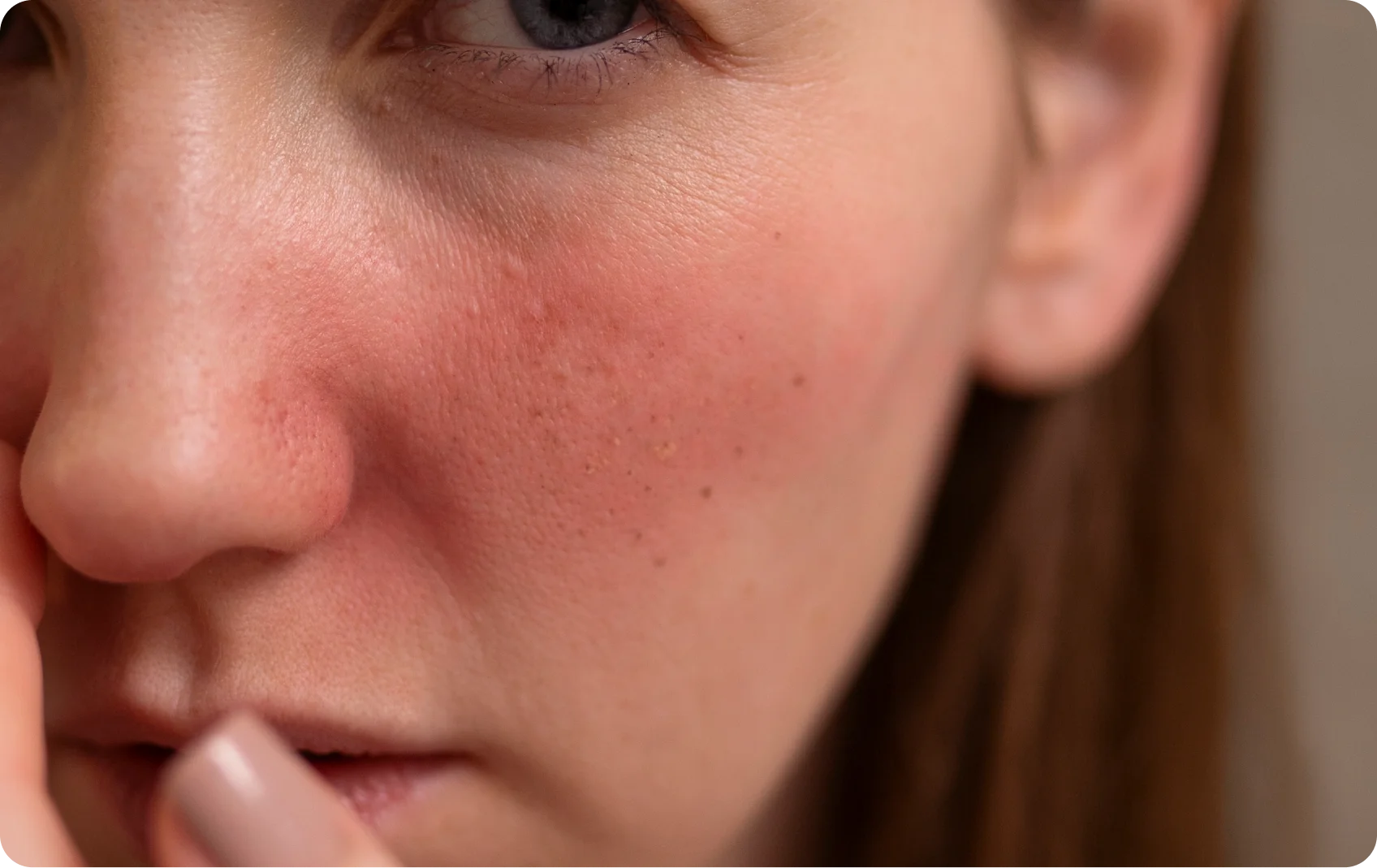
Rosacea Treatment
Rosacea is a skin condition typically characterized by redness, swelling, visible blood vessels, and acne-like bumps, primarily in the central area of the face. Rosacea symptoms are often accompanied by burning, itching, discomfort, and skin sensitivity. Treatment for rosacea aims to alleviate and manage symptoms. It is generally customized by a dermatologist and may include one or more of the following methods:
- Topical Medications: Topical (locally applied) medications can be prescribed to help relieve rosacea symptoms. These medications may aid in controlling redness, inflammation, and acne-like bumps. Ingredients may include azelaic acid, metronidazole, and ivermectin.
- Oral Antibiotics: Oral (taken by mouth) antibiotics are commonly used in rosacea treatment. They can be effective in reducing inflammation and acne-like lesions. Doctors may prescribe various antibiotics, such as tetracyclines or erythromycin.
- Laser and Light Therapies: For patients with visible blood vessels or redness due to rosacea, laser or intense light therapies can be used. These treatments help reduce redness by narrowing blood vessels on the skin surface.
- Dermocosmetic Products: There are dermocosmetic products specifically formulated to help alleviate skin sensitivity and manage rosacea symptoms. These products can protect the skin and assist in better symptom control.
- Lifestyle and Dietary Adjustments: Some cases of rosacea are associated with trigger factors. Alcohol, spicy foods, hot drinks, sunlight, and stress can exacerbate symptoms. Therefore, avoiding or limiting these triggers is crucial during rosacea treatment.
- Skincare: Gentle skincare is essential. During rosacea treatment, appropriate cleansers, moisturizers, and sunscreens should be used. Products that are free of irritants are also preferred.
Rosacea treatment is customized according to an individual’s symptoms, skin type, and needs. Consulting a dermatologist before starting treatment is essential. While treatment can help alleviate symptoms, it may not completely cure rosacea. The goal of treatment is to control symptoms and prevent the progression of rosacea.
Contact Us
Contact
- +90 (549) 170 10 92
- [email protected]
- Caddebostan, Selin Sk. No:4/2 34728 Kadıköy/Istanbul

